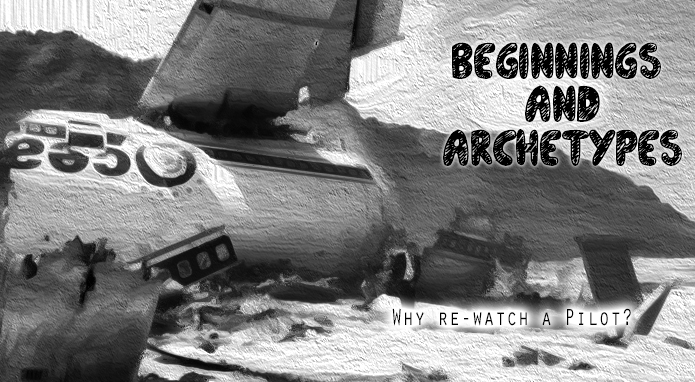//We Have To Go Back
Seeing what stripping away mystery tension did to a single piece of the series like “Man of Science, Man of Faith” tells us how an individual episode can be trimmed into a singular, Island-only narrative without losing the crux of what that story was supposed to communicate to the greater arc of the series.
This made me curious about how much could be abbreviated to just the Island plot while still telling a complete narrative in its own right. I was convinced that the entire series could be expanded and contracted like an accordion paragraph to tell the story of the Island in varied degrees of complexity. So, like an accordion (or a sandwich to go with the earlier metaphor), it’s important to separate the beginning and end of the overall narrative.
The first two episodes of Lost cannot answer any questions. It’s entire purpose is to introduce us to the characters, setting, and storytelling mechanic of the series. Because Lost was built on withholding information, “Pilot” needs to be the master of withholding, and it is – though Kate and Locke are introduced, we don’t learn that Kate is the prisoner and Locke used to be in a wheelchair until episodes 3 and 19 respectively (on Island, not Flashes). Similarly, “The End” of season six cannot introduce any new plot or questions, it can only close off the plots and themes the series has deemed important.
We can acknowledge the “Pilot” in our cut to understand story, but because it’s an exercise in archetypes – as arguably most pilots have to be – and because Lost forces its players to retread the content of their character multiple times over the life of the season, the Pilot’s only story functions are to introduce the survivors as archetypes on the Island, establish the Monster as a threat, and propel us into the series with the cliffhanger of Rousseau’s signal.
[Open Soundcloud page In A New Window to play while surfing or download]
Da7e (@da7e), Patches (@misterpatches), David (@davidehrlich and @CriterionCorner), and Katey (@kateyrich) talk about the Lost pilot, beginning TV stories in general and how much complexity that can bear.
NOTES:


Comments